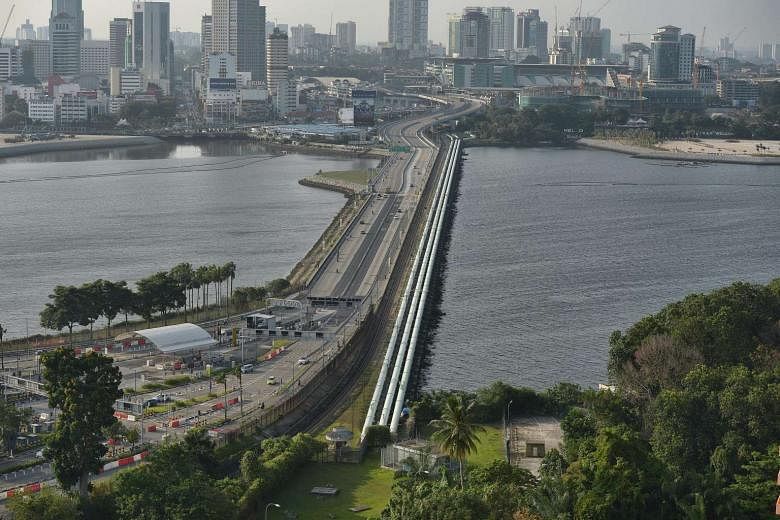JOHOR BARU (THE STAR/ASIA NEWS NETWORK) - The Malaysian government does not plan to scrap the Vehicle Entry Permit (VEP) for foreign cars, saying it will fine-tune the system to prevent any hiccups.
Transport Minister Liow Tiong Lai, who disclosed this, maintained that the VEP was not discriminatory and would first be enforced on cars entering from Singapore and later from Thailand, Brunei and Kalimantan.
"Please do not listen to rumours and speculate on the date of implementation. I apologise to the Johor government as they want it to be implemented as soon as possible but we need some time to make sure there are no hiccups," he told reporters after the opening of the new RM48 million (S$16 million) Johor Port Authority building here by Menteri Besar Mohamed Khaled Nordin on Sunday.
Asked if there was a deadline set for the introduction of the VEP, he said: "Please give us some time to make sure everything is in order... Maybe in a month or two."
He said testing of the system was ongoing, adding that he had directed round-the-clock checks instead of just during the day.
So far, more than 120,000 Singapore-registered cars have signed up online for VEP.
Datuk Seri Liow also urged port operators to upgrade their facilities so that they would not be left behind due to rising global competition.
He cited the third phase of the Port Of Tanjung Pelepas (PTP) as an example. Development would begin as soon as possible as the port was already doing about nine million TEUs .
"It is already ranked 19th in the world. The third phase will help PTP hit 30 million TEUs in the future.
"We just cannot afford to take our time as Singapore's Tanjung Tuas port is already expanding its capacity from 30 million to 65 million TEUs.
TEU, or Twenty Foot Equivalent Unit, is the unit of the capacity of a container ship, a container terminal and statistics of the container transit in a port. The two most common international standardised containers are 20ft and 40ft (6m and 12m).
"It is very competitive. If we do not move fast, we will be left behind," he said, adding that the government was striving to ensure 1.3 billion tonnes of goods passed through Malaysian ports by 2045.
Mr Liow said that at present, the efficiency of local ports was on par with other major ports in the world but more needed to be done to improve logistics.
"That is why we are looking into the possibility of giving incentives for more companies to use rail and then trucks for short haul (journeys) or from rail depots," he added.
Mr Liow said PTP was among six ports in Malaysia which was working with 11 ports in China through a memorandum signed last November.
"This is an important MoU as China is a notable power in the port and maritime industry," he said, adding that the other ports were in Bintulu, Malacca, Port Klang, Kuantan and Penang.

